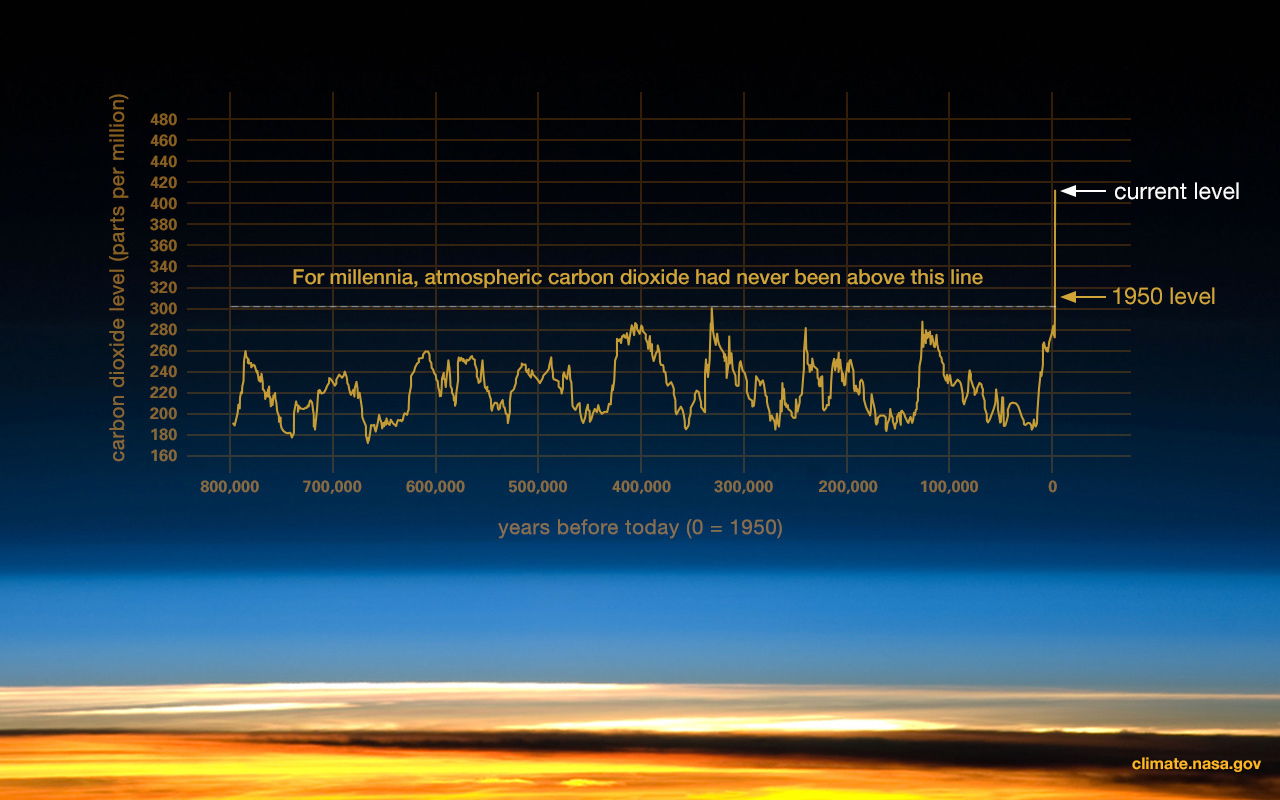
I'm sure you've heard about climate change, but do you know what it is? Let's start with the change in Earth's climate. As the image above shows, the level of CO2 in our atmosphere began a rapid increase starting in the 1950s. This is due to the Industrial Revolution, which was when humans began to quickly use up Earth's supply of fossil fuels.
Fossil fuels are the world's main source of energy, but are unfortunately non-renewable. This means that fossil fuels cannot be reused, and once they run out, they're supply won't be replenished. The 3 main types of fossil fuels are coal, oil, and natural gas.

One way the use of fossil fuels harms Earth is due to the process of mining them. During this process, land can be completely destroyed, and animals can be forced to leave, and some can become endangered. In addition, the wastewater created from mining fossil fuels is often stored in open pits or underground wells, which can then contaminate once-clean water sources. This is linked to many diseases such as cancer, birth defects, neurological damage, and much more. Fossil fuels also greatly contribute to toxic air pollution, and strip mining can release GIGANTIC AMOUNTS OF CO2 into our atmosphere. As if all that isn't enough, fossil fuels also emit CO2 when they are burned, which adds to the emmissions made when they were mined. "Coal-fired power plants singlehandedly generate 42 percent of dangerous mercury emissions in the United States, as well as two-thirds of U.S. sulfur dioxide emissions (which contribute to acid rain) and the vast majority of soot (particulate matter) in our air[,]" (https://www.nrdc.org/stories/fossil-fuels-dirty-facts#sec-burning). Fossiil fuels also produce CO2 when they are burned. CO2 prevenets heat from the sun leaving our atmosphere (as it normally would), and this causes climate change. Furthermore, our oceans absorb 1/4 of human-made CO2 emissions. This causes ocean accidification, which leads to slower growth rates of species in the ocean, weaker shells of crustaceans, and also jeopordizes entire food chains.
Climate change can cause "more frequent wildfires, longer periods of drought in some regions and an increase in the number, [and] duration and intensity of tropical storms[,]" (https://climate.nasa.gov/effects/), as well as higher sea levels, a decrease in sea ice, and more heat waves. All of these things threaten society, so we must take action to stop them.